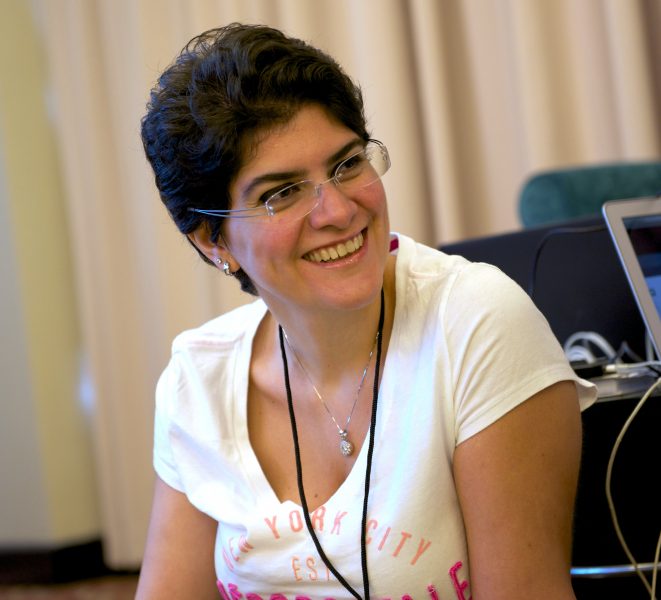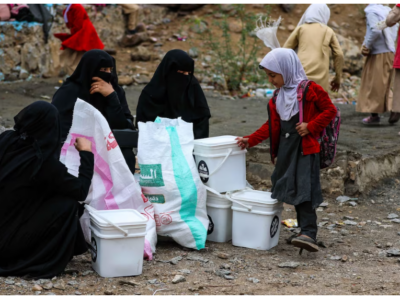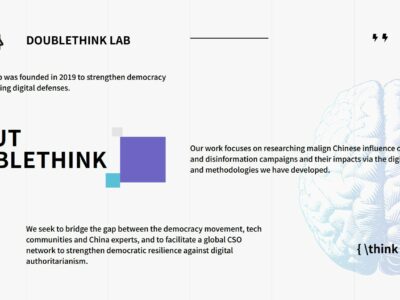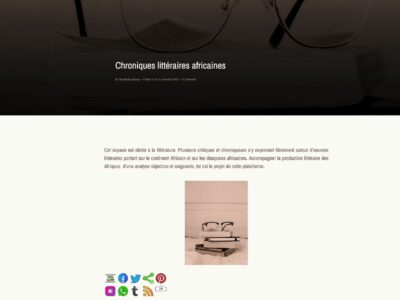
Lara Al Malakeh, in Global Voices Summit in Cebu, the Philippines. Photo by Laura Schneider.
Lara AlMalakeh is one of our Arabic Translation Managers at Global Voices. She takes us through her journey in GV, from her country, Syria, through Dubai, where she lives, to her dreams and bright future ahead!
Tell us a bit about yourself and how you joined GV and the stages of your involvement
I have always been a firm believer in voluntary work, after volunteering for the Red Crescent, in my hometown Damascus, for almost seven years. I stumbled upon Arabic Lingua by coincidence while searching for a term during one of my translation jobs. I guess it was love at first sight. I was attracted to the fresh language and appearance, the diverse and relevant articles and the political non-biased and non-censored content.
Before I knew it, I was filling out the form to become a volunteer translator, and within a few months of joining, I became an editor. That was back in 2014.
I have always loved translating. I used to translate songs when I was little. I guess it’s something that ran in the family. My father did it, so did my aunt. Even though I didn’t study translation in university, and even spent years not practicing it, I jumped at the opportunity to study it in 2013, and I enrolled for a one-year distant learning post graduate certification in translation. Shortly after graduation, I stumbled upon GV and joined the team.
Did your experience of translating, authoring and editing change your vision of the world during this time?
To put it more accurately, it was my GV experience that changed my views. I was already a translator before I joined, but being around this amazing group of activists, rights advocates and privacy experts opened my eyes wide to a world I knew nothing about. I was also fortunate enough to attend the GV summit, which took place in Cebu, Philippines, in January 2015. I met the amazing people face-to-face, and I learned about these things hands-on. After the summit, the conversation continued through various online groups where we share, comment and exchange views on global issues, as and when they happen. Due to that, I have become the fastest and most reliable source of news to my family, receiving the news, the real news, by eyewitnesses from around the world.
Does your work with GV impact your practice with your job? What were your previous experiences translating? Was it very different from what you had done before?
My daily job is a very corporate structured one. I mainly translate legal and financial documents. I translate for my company, and I work as a freelancer as well. With GV I stay in touch with the literary, the technical and the political terminology which I don’t deal with in my daily job. I have to say I resorted to my GV friends many times for help with random items that were related to my daily job. The GV community is like a pool of collective knowledge and resources. Working with GV is not different, technically speaking. WordPress takes some time to get used to, that was the biggest challenge.
Did the social media scene change a lot in your region since, say, 2009?
Indeed, towards the worse, since the Arab Spring. I’m not going to talk much about it here because it’s well-known. In short: more users, more self-expression and much more government scrutiny and control.
Could you also elaborate somewhat on how you manage your own time for all these tasks, including your day job? Any hobbies? Any tips?
Oh wow! With a full-time job, two kids and a household to run my life was spinning like crazy.
To help me control my life better, I started working part-time which made a big difference in my life. That brought much-needed balance. However, with the extra free hours, I jammed myself again with more tasks and activities. It’s only recently that I took a concise decision to slow down, and now before I take on any new copy-writing job or enroll in an additional class in the gym, I step back, think it over, and only go for it if it fits comfortably with my schedule. I don’t take rush translation jobs anymore even if they pay well.
Once I send the kids to school in the morning, go to work navigating my way through traffic. I spend 6 hours at work, and my job is in administration in addition to translation. After work, I hit the gym around three times a week. Then I head back home and manage to put some order there. It’s only after the kids are in bed that I get the time to practice my hobbies, including my GV work. Apart from translating and editing, I enjoy reading, and I try to hit the gym as many times a week as I can. Running actually helps me clear my mind. I’m trying to revive an old hobby of mine which was buried under commitments and chores; that is writing.
I am about to fulfill one of my dreams, continuing my higher education. I will start a Masters in arts and culture in Amsterdam this coming September. Hoping this will open up the door for new career opportunities in a field that I love and enjoy.
Why do you think a man in the street should read GV in Arabic?
As said before GV in Arabic is one of the few sites that does not operate under a political agenda, which is the problem of our mainstream media, especially in the past few years. In many cases, GV reports on stories that cannot be read anywhere else, such as the various testimonials of Syrian activists who were on the ground during the early days of the revolution before they had to flee for their lives. Same thing applies to Yemen and Bahrain, though on a smaller scale.
In all the time you have been collaborating with GVO, what is your most memorable experience?
It has to be the GV summit in Cebu city and getting to meet all those great people in person.
Describe your work at Arabic Lingua and tell us about your plans and future hopes for the site?
I am lucky to be part of a great team of 4 editors who always fill-in for each other.
In addition to the team, Gohary has never stopped his support to Arabic Lingua even with all his responsibilities as the head of Lingua.
I edit submitted translations and provide brief advice on translation methods. I also try to connect with the translators away from the GV sphere through chats or Skype calls to establish a human connection away from work.
Another incredibly fulfilling task I have in GV is translating posts for the Bridge from Arabic into English. The work is extremely fulfilling because of the nature of the posts I translate. They are mainly from Syrian activists who talk about their experiences through the beginning of the Syrian revolution and post their forced relocation into neighboring countries. Being Syrian, I have a very deep connection to those stories. I cried so many times while working on some of those pieces. It was not an easy task at all, but I felt rewarded by knowing that I’m helping the voices of the Syrian revolutionists get heard by the world.
How do you see GV Lingua progressing over the next few years?
GV is an amazing community with some extremely talented people and very diverse voices and points of view. The growth of Lingua is organically linked to the growth of GV, and I think GV needs to capitalize more on its asset, the unique pool of talents, and work on strategically carving a bigger space for itself in the digital media scene.
GV Lingua could form tie-ups with big names in the world to become their official translator. I know this requires a big amount of logistical work, but it’s doable and would be, I believe, a step in the right direction.
One progress I applaud in Lingua is the translation from Arabic into English.
How do you pick posts to translate, and, in fact, why did you choose to volunteer this way?
To me, posts that talk about Syria, politics in the region and women’s rights or abuses immediately resonate with me. I feel limited though to what I can translate due to the tight monitoring of online activity in this part of the world. The second part of the questions was answered earlier.
You have been translating for GV for a while now, what would you say to those just starting out?
I say ‘stick your grounds.’ Sometimes volunteering becomes boring and monotonous. You could lose your motivation especially when all your work and communications are virtual not physical and/or face-to-face. However, the GV community is a hidden gem. Apart from the enriching and rather fun conversations and exchanges of views and ideas, the GV community is a hub for learning, socially, historically, geographically and politically. It’s like the pooled knowledge and expertise of the world. A little Wikipedia, only more credible.
On a personal note, after having met my colleagues during the summit, I feel I have a house in every city in the world, and it proved to be true. Every time I travel I don’t feel like a stranger, for in almost every city you’ll find a GVer who would meet-up with you, show you around and even offer you their couch for the week.
Tell us about the city you live
I live in Dubai. I know how the name resonates with the readers: the exotic, rich city where people spend their days laying on the beach sipping margaritas and stumbling upon bags of money in the streets.
Nice image, but untrue, unfortunately. Living in Dubai is hard work. The pace of life here is extremely fast, and work, all work, is very demanding. With the technology revolution, you end up working 24/7 because you are always reachable, and everybody expects everybody to be available around the clock. Banks only close on Fridays. Bank branches in the malls remain open until 10 pm (following the mall hours), malls don’t have a day off, they’re open 365 days a year, call centers operate almost till midnight.
On the positive side, it is a beautiful city, immaculate, very safe, most of the government services are now automated through online portals, which makes life much easier. Living here, you get the opportunity to deal with a very diverse, multinational society. You learn a lot about tolerance, acceptance, and respect, not to mention the whole lot of information and culture you get to understand and experience firsthand.
And how would you describe your country to a foreigner?
Oh wow, I can write pages about that! I come from Syria, the country that has been making the global headlines for years now, but for all the wrong reasons. If I’m going to briefly tell you things about my home country that you don’t hear in the news, it will be this:
Syrians are not extremists. Maybe we don’t have an appetite for the different, but we’re just like any other Eastern/Arab society in that aspect. Syria is a highly diverse piece of land with many religions, minorities, and ethnicities living together. We used to attend Christmas lunch at our Christian neighbors’ house, and they always shared our Iftar meal on the first day of Ramadan. Syrians are not just refugees who love to throw themselves into the unknown. Syrian artists have been pioneers in the region. But what we’ve been subjected to, for 40 years before the revolution in 2011, and the condensed government terrorism that followed for six years now, and with the world bailing out on us, people had to find a mechanism to survive. For some it was joining the strongest bully, is some areas it was ISIS, in others, it was the regime. Others just fled their lives despite their 50/50 or fewer chances of survival. Syrians are people who love life just like other humans on this earth!
Finally, describe yourself and how you see the world.
I am an optimist who believes in positivity as a way of life. People tend to believe this is naive, but the way I see it is that: life is tough, cruel and unfair. So, you either give up and shoot yourself in the head or if you chose to live then live it right: with positivity and optimism. As someone once said: “you can’t control what life throws at you, but you can fully control how you react to it.”



